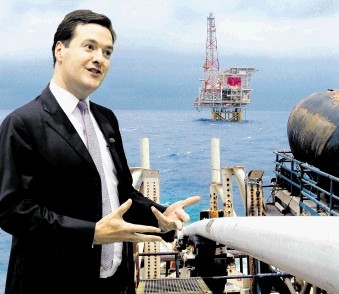
As I write this in the run-up to Christmas it feels as if the Government has bestowed a series of Christmas presents on the industry.
In the space of a week we had the publication of the Gas Generation Strategy and the Treasury’s latest consultation on decommissioning tax relief. In the Gas Generation Strategy, Ed Davey announced that DECC would consult on an appropriate fiscal regime for shale gas activities with a view to further onshore licensing and would also establish an Office for Unconventional Gas and Oil in a bid to streamline the regulatory process for that sector. Discussions between Government and industry around decommissioning tax relief have been going on for nearly two years now – the draft enabling legislation and second consultation paper issued by the Treasury spell out a lot of the detail in relation to the proposal for decommissioning relief deeds and represent the latest step along the road to providing certainty on this issue for decades to come. It looks as if 2013 may see the first deeds actually put in place. Finally, on December 13 we had the announcement of the end of the moratorium on drilling by Cuadrilla in the North West.
There seems to have been a genuine sea change in the Government’s view of the oil and gas sector in the last couple of years. Finally, the Government seems to have recognised that viewing the industry simply as a cash cow is a mistake. Against a flagging economy, it can be a genuine engine of growth and, with the right incentives and regulatory structure, has the potential to make a major contribution to affordable energy security.
Of course, the jury is still out on exactly how much of a contribution shale gas can make to this future. There seems to be a growing public recognition that the environmental risks have been exaggerated and can be controlled by proper regulation. Although there will be rigorous requirements to address the specific environmental risks of fracking, the Gas Generation Strategy suggests that DECC sees no need for wholesale rewriting of the regulatory regime for the unconventional sector – the current onshore licensing regime operated by DECC will continue to apply, although “OfShale” will offer something of a one-stop shop for those needing permits to operate. However, as it has done with “promote” and “frontier” licences offshore, DECC will consider whether the duration and terms of licences need amendment to address the specific requirements of the unconventional sector. It’s not clear how OfShale will be staffed and it is to be hoped that there is recognition for the need of additional resources in DECC given the existing workload of its oil and gas team.
There is much discussion of the tumbling gas prices across the Atlantic as a motivation for shale gas development but it remains to be seen whether the scale and geology of the UK’s shale gas resources will permit commercial exploitation. Critical to this will be the ability to access land and the cost of obtaining and complying with planning permissions.
In the US, landowners are incentivised to allow development because they own any oil or gas found beneath their property. By contrast, in the UK the Crown owns sub-surface resources and licences third parties to develop them. There is no requirement for consent from, or compensation for, the landowner. The landowner can refuse access to his land. However, in Star Energy v Bocardo, the Supreme Court set a valuable precedent by finding that where an operator drills laterally to access gas underneath adjoining land no substantial damages are owed for the “trespass” unless there is actual damage. But even horizontal drilling still requires a site from which to drill.
In addition, while shale gas can ultimately be produced from a relatively unobtrusive facility, during the fracking process there will be a need for the transport of equipment and large amounts of chemicals to the site, as well as a substantial water supply, and thereafter potentially pipelines to a power plant. All of this requires planning permission and community support.
On our crowded island any industrial operation has a lot of neighbours. The time and cost of the planning process have plagued the onshore wind industry and could do the same for shale gas – so the real challenge for unconventional gas lies not with OfShale. Instead, it will rest in a battle of hearts and minds.
Penelope Warne is head of energy at international law firm CMS Cameron McKenna